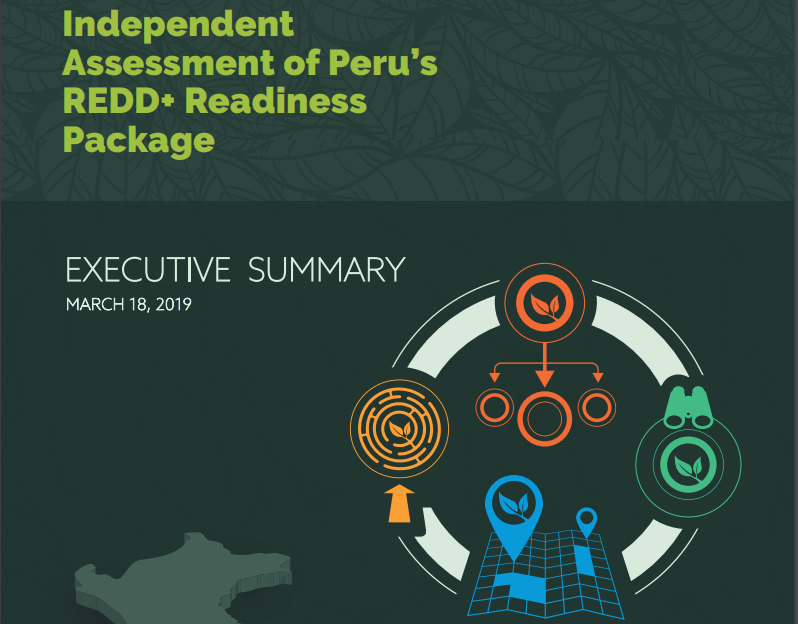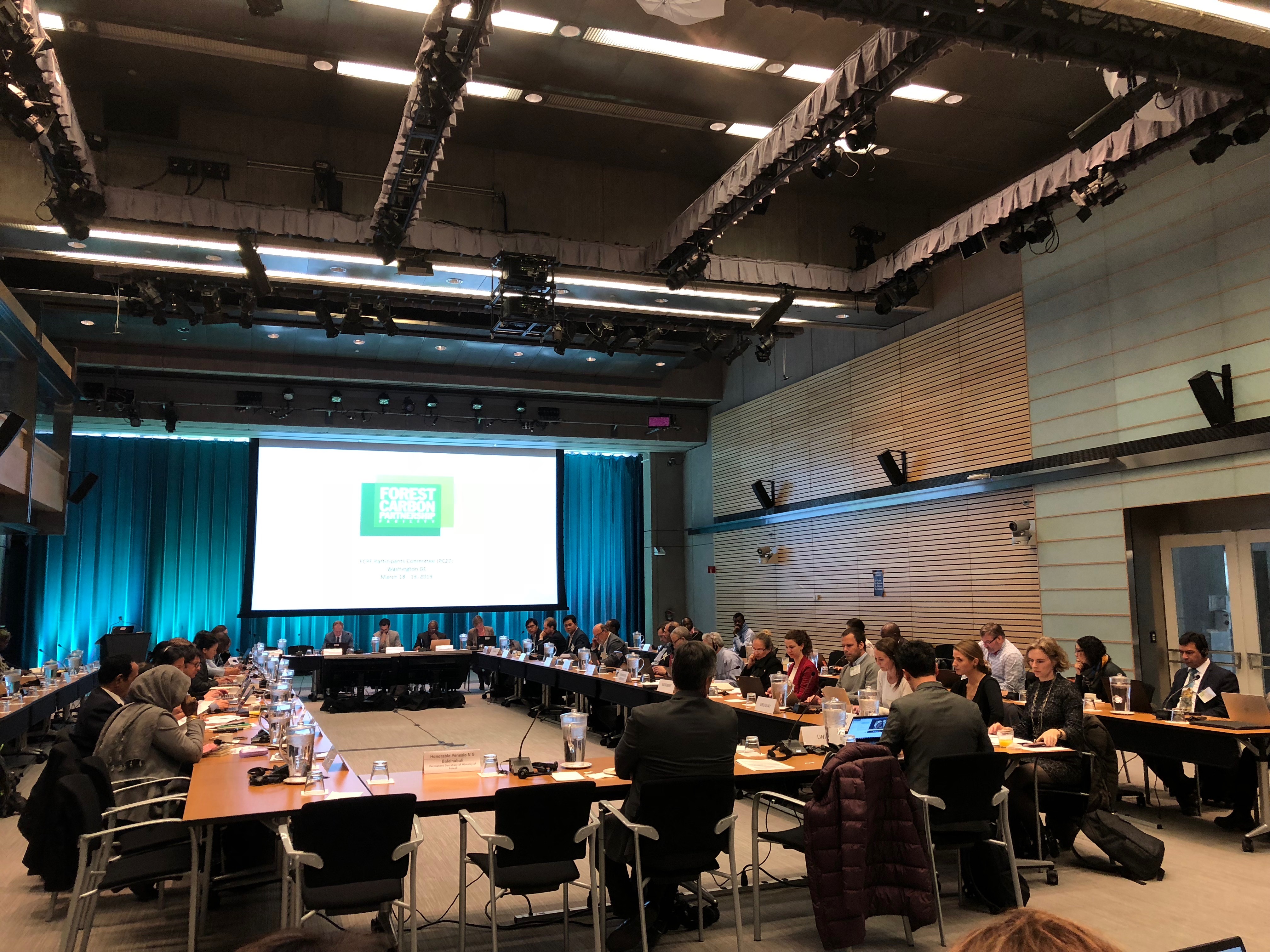- On Wednesday 20th March, the Forest Carbon Partnership Fund (FCPF) announced the endorsement for Peru’s Readiness Package (R-Package) at its Participants Committee Meeting.
- The R-Package Endorsement Resolution includes several of the recommendations proposed by DAR in its independent evaluation of this process, which was delivered to the Fund’s Observers and other members of the Participants Committee.
- One of the main points included in the Endorsement Resolution of Peru´s R-Package is the need to promote actions to mitigate the impacts of road construction, which are directly and indirectly linked to approximately 86% of deforestation in the Amazon.
The twenty-seventh Participants Committee Meeting (PC27) of the FCPF began last Monday 18th March, in Washington DC. The Peruvian Government presented the evaluation of its R-Package[1]. The meeting also included the results of the report made by the Technical Advisory Panel (TAP)[2], as well as a representative of the Inter-American Development Bank[3].
During the presentation, the Ministry of the Environment emphasized the work that remains to be done on several points of the Assessment, many of which have already been noted by civil society organizations and indigenous peoples, such as safeguards, benefit sharing, community titling, forest regulation, the inclusion of the REDD+ approach in other government sectors and the improvement of the relationship between drivers of deforestation and REDD+ actions. For their part, the Civil Society Observers and the participants of the meeting transmitted the recommendations of the Independent Evaluation to the R-Package, carried out by DAR[4], which found important challenges to advance in the carbon fund. These recommendations were taken up by the Co-Chairs’ Summary.
After two days of deliberation, on 20th March, the decision of the FCPF Participants’ Committee was announced, endorsing[5] Peru’s R-Package.
However, as can be read in the resolution, in addition to endorsement the request, it also indicates that, besides to the above, it will be necessary to take into account the issues raised during the meeting, as indicated in the Co-Chairs’ Summary, and the proposals by the TAP expert, which will be binding on the Resolution.
The following is a list of the 5 points, proposed DAR, to be taken into account by the Peruvian government at the request of the FCPF:
- The need to include greater efforts to mitigate the impacts of infrastructure on deforestation;
- Improve forest regulations to facilitate the sustainable use of forests;
- Simplification of processes for the titling of indigenous territories;
- Increase efforts to involve indigenous organizations at the subnational level;
- Prioritize the completion of important documents and key processes to continue REDD+ processes such as: ESMF, SESA, as well as the establishment of REDD+ Actions, benefit-sharing mechanism, Grievance and Redress Mechanisms (FGRM), implementation of the REDD+ Safeguard Information System (SIS), among others.
[DOWNLOAD THE EXECUTIVE SUMMARY OF THE DAR EVALUATION TO THE REDD+ READINESS PACKAGE FROM PERU]

Likewise, in the resolution, the Participants Committee urges Peru to continue with its preparation process, including the implementation of its work programme.
This support means the possibility of the country advancing in the FCPF Carbon Fund[6], since this is a necessary requirement, although not the only one, to request the payment operation to the FCPF Carbon Fund, which has its own requirements. That is to say, this endorsement could mean going from the preparation phase to the implementation phase, if the Request that the Peruvian Government has been working on, through the design of the Emission Reduction Programme (ERPD) for avoided deforestation, in the regions of San Martín and Ucayali, for an estimated value of 35 million US dollars[7], is accepted. The design of this programme required an investment of US$ 650,000.
Now we have the task of monitoring compliance with these points to continue in the race to implement REDD+ processes, in addition to seeking complementarity of different initiatives with similar objectives, such as the JDI (Joint Declaration of Intent), to avoid overlapping activities and the efficient use of resources.
[1] Available here.
[2]Available here.
[3] Available here.
[4] Available here.
[5] Available here.
[6] Available here.
[7] Available here.


